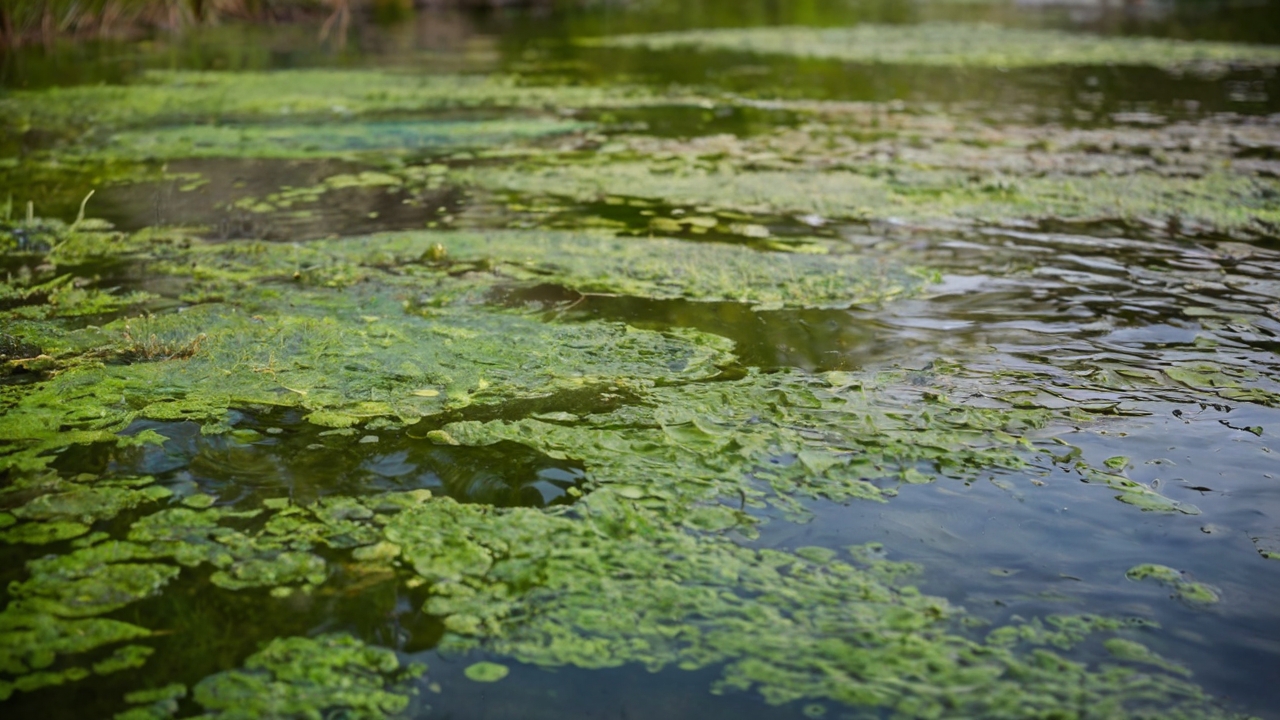
Algal Blooms Dangers
North Carolina-- July 22, 2024: North Carolina of Health and Human Services: Algae often live in fresh bodies of water
such as lakes, ponds, and canals. Like plants, they can use the sun as an energy source. Small numbers of algae can explosively grow into large numbers very quickly – this rapid increase is called an algal bloom.
Conditions that can contribute to algal blooms include hot, dry weather and increased nutrients in a body of water. Sometimes an algal bloom can become harmful to people, pets, livestock, and aquatic plants and animals by producing toxins, shading light, and clogging gills in fish. It is hard to tell whether a bloom is harmful by just looking at it, so it is best to avoid water suspected of having an algal bloom. When in doubt, stay out!
Avoiding Recreational Water Illnesses
Cyanobacteria (Blue-green Algae)One type of freshwater algae increasingly seen in North Carolina is cyanobacteria, also known as blue-green algae, which may actually look reddish-brown as well as bright green or blue-green. Many types of algae flourish in lakes and ponds with poor water flow, especially during the hot months of the year.
When conditions are right, blue-green algae can multiply and accumulate rapidly, causing a bloom. The algal bloom may turn the water neon green, blue-green, or reddish-brown; may cause a bad smell and taste in the water; and may form a foam or scum on the water's surface. The algae may periodically use up oxygen in the water, killing fish.
It can also affect other animals and people. By nature, dogs often play and wade in shallow areas of a pond or lake where algal blooms tend to concentrate due to wind and water currents, and where the toxins can become concentrated. Dogs usually become exposed to the toxins by drinking bloom waters or eating the algae. Algal toxins can be lethal to a dog.
Young children also play and wade in the shallow areas of ponds and lakes, and are exposed to toxins if they ingest bloom waters containing toxins. Due to their size, children may have adverse health effects from smaller amounts of toxins than would affect an adult.
Algal Toxins
Toxins associated with fish
Toxins associated with shellfish
Toxins associated with recreational swimming
Protecting Your Family’s Health
Although there are no documented reports of people getting sick from algal blooms in North Carolina, people should follow these practical precautions around algal blooms:
Keep children and pets away from waters that appear discolored or scummy.
Do not handle or touch large accumulations of algae, also called “scums” or “mats”.
Do not water ski or jet ski over algal mats.
Do not use scummy water for cleaning or irrigation.
If you accidently come into contact with an algal bloom, wash thoroughly.
If your child appears ill after being in waters containing a bloom, seek medical care immediately.
If your pet appears to stumble, stagger, or collapse after being in a pond, lake or river, seek veterinary care immediately.
If you are unsure whether or not a bloom is present, it is best to stay out of the water.
For additional information regarding how to protect your health in recreational waterbodies from other exposures visit here.
For additional information regarding how to protect your pet's health in recreational waterbodies please review the following fact sheet.
Identifying and Reporting a Suspected Algal Bloom
The North Carolina Department of Environmental Quality (NCDEQ) is responsible for monitoring and investigating reports of algal blooms across the state. NCDEQ has the ability to collect algal bloom samples to analyze them for algae that potentially pose a health risk. More information on how to report an algal bloom to NCDEQ is provided below.
How to identify an algal bloom (PDF)
To report an algal bloom, please contact your regional NCDEQ office.
Questions
If you have questions regarding health concerns related to algal blooms please contact the Occupational and Environmental Epidemiology Branch at (919)-707-5900.


 How to resolve AdBlock issue?
How to resolve AdBlock issue? 